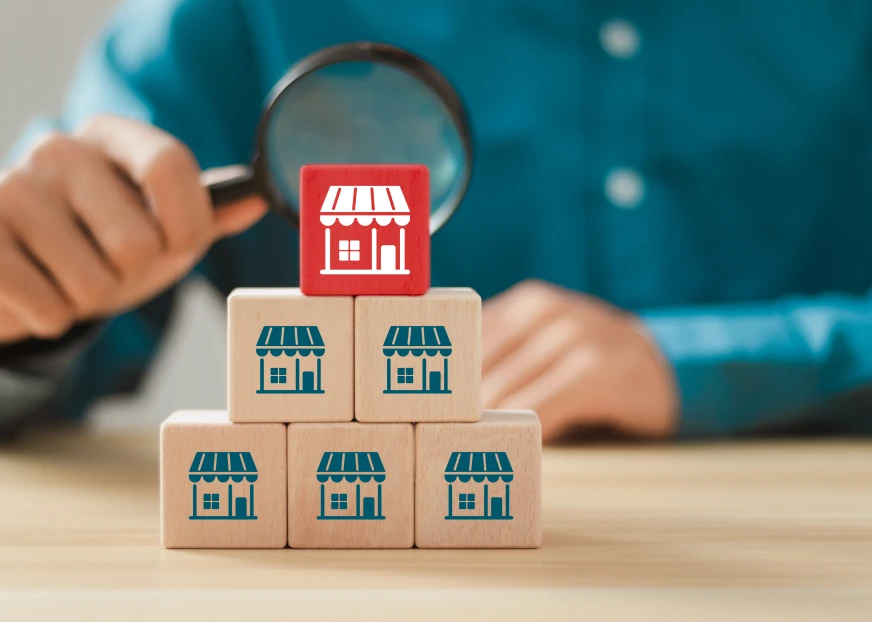All homeowners require home insurance. There are so many things that put your home at risk from break-ins to fire and storm damage to vandalism. Because most homes are under a mortgage, insurance also protects the lender when something occurs. Home insurance is sometimes unclear in what it does and does not cover. As well there are different types of insurance policies available when it comes to how the policy pays out for claims. If you are shopping around for home insurance here are six things you should consider before making your decision.
Who sells home insurance?
There are two ways you can buy insurance. The first is through an insurance agent at an insurance company that represents a single company and its products. The second is an insurance broker who offers a wide selection of insurance products from many different insurance companies. Insurance brokers offer a better option because they are not tied down to a single provider. Instead, we look at all your options and find the best rates and coverage in hand with the service that suits your needs. We are not biased by one single home insurance product and put your best interests first, so you always get the right policy for your needs.What does home insurance cover?
When working with our brokers, you will have a thorough explanation of what each policy covers. Our goal is to find a policy that offers enough insurance to replace or repair damages caused by a serious event. Generally, home insurance covers your home itself (the structure), your contents, the people living in the home and living expenses should the home not be inhabitable following damages. However, the specifics of exactly what is covered, how much funds will be provided and the other details such as how the cash amount is determined or what causes the damage all vary greatly from policy to policy. The three types of coverage include:
- Named peril insurance, which only protects you against a list of perils such as water damage, fire, and theft.
- Comprehensive insurance, which protects against everything but will still have some exclusions.
- Broadform insurance, which combines named peril and comprehensive for better coverage of your valuables.
We can come up with a customized solution that makes sure you are covered for all inevitabilities.
Understanding replacement cost vs. fair value
This is one of the most important aspects of home insurance. There are two ways insurance companies cover damages:
Fair Value
Fair Value is based on the current value of items when they are lost. In other words, if you have a 10-year-old television, it will have depreciated in value and therefore you will not be given the amount you paid for it or even enough to cover buying a new TV.
Replacement Cost
Replacement Cost is just that. You are provided the amount of money needed to replace your losses. Just keep in mind if you did have a 10-year-old TV, you won’t be given money to buy the most state-of-the-art model. It is not intended to provide an update, but simply cover the costs to replace your household items.
Both options are applied to not just your belongings, but repairs and replacements to cover damage to your home’s structure. Again, if you have a replacement value you can’t decide to upgrade everything in your home. For example, if you have carpeting you can’t expect to be covered for hardwood floors. Also, Actual Cash Value is the term used for the estimated cost to rebuild your home. This number is determined based on the age of your property, market depreciation and general wear-and-tear.
Is the cause of damage important?
Yes, as mentioned, the “perils” that cause damage are considered in your home insurance coverage. As a result, the named-peril policy offers the least amount of coverage. Common perils include:
- Natural disasters Not all natural disasters are covered by home insurance. Commonly hail, wind and lightning are covered, while flood insurance is additional. You’ll want to learn about flooding risks near you such as streams, lakes, and ponds that could pose issues to decide if you need flood insurance.Most homes are susceptible to some form of flooding so it is probably something you will want to consider. Storm damage should also cover things such as felled branches, or things that can fly into your home and cause damage during a storm.
- Fire coverage This is the main reason people get home insurance, as home fires can be devastating. Almost every policy includes coverage for fire damage. One thing to consider here is whether the policy will cover your living expenses while your home is repaired, cleaned or rebuilt.
- Vandalism Although this is covered by most policies, it can also unexpectedly be listed as an exclusion. Make sure your policy also covers uninhabited homes, which means your belongings are in the home, but you are not currently living there, and vacant homes where there are no belongings in the home, and you do not live there. In these cases, there is usually a time limit for how long insurance coverage applies.
- Personal liability This is also usually included and covers expenses related to injuries that occur on your property. If someone falls because you didn’t repair your stairs or they slip on ice, this will cover you should they choose to sue.
We will discuss perils and make recommendations to provide the best coverage for your budget.
-
Recognize risks
As already mentioned, risks for flooding will be considered when you are purchasing your home insurance. However, there are other risks to be considered, many surrounding the risk of fire damage including:
- How close you are to a fire department or hydrant
- Oil heating which can be a fire hazard
- Breakers versus fuses
- Electricity flow less than 100 amps
- Old wiring systems, such as knob and tube
- Wood stoves
- Fireplaces
Gas stoves and fireplaces don’t usually have an impact on your rates.
-
Don’t forget updates
Once you have purchased your insurance policy, don’t forget to report any changes to your property and belongings including:
- Renovations and upgrades
- Installing a pool or spa
- Home-based businesses
- Leasing your home, part of your home or and area or outbuilding on your property
- Purchasing belongings of major value such as jewelry, a home theatre or artwork
Without an up-to-date description of your home and your belongings, you could run into challenges if you make a claim.





